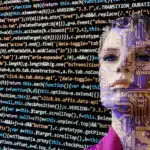Unstructured data refers to any digital information that does not have a predefined data model or format. This means that unstructured data does not conform to traditional relational database structures, which are organized into rows and columns. Instead, unstructured data can take many forms, such as text documents, images, videos, audio recordings, social media posts, and sensor data.
Unstructured data is typically much more difficult to manage and analyze than structured data because it lacks the predefined schema that allows for easy indexing, querying, and processing. However, unstructured data can contain valuable insights that are difficult or impossible to extract from structured data alone. For example, text data from customer reviews or social media posts can provide essential information about customer sentiment, product preferences, and brand reputation.
To analyze unstructured data, specialized tools, and techniques are required, such as natural language processing (NLP), computer vision, and machine learning. These techniques enable data analysts and data scientists to extract useful information from unstructured data and turn it into structured data that can be analyzed using traditional data analysis tools.
Given the rapid growth of digital data in recent years, unstructured data has become an increasingly important area of focus for businesses and organizations that want to gain a competitive advantage by harnessing the power of big data analytics. By analyzing unstructured data, organizations can gain valuable insights into customer behavior, market trends, and operational performance and use this information to make data-driven decisions that can drive growth and profitability.





